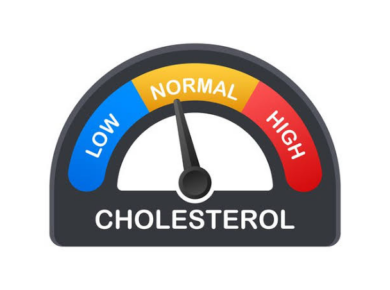
Noncommunicable diseases (NCDs) have become a global health concern, responsible for the majority of deaths worldwide. Unlike communicable diseases, NCDs are not infectious and cannot spread from person to person. In this article, we will explore ten key risk factors associated with noncommunicable diseases and their impact on public health.
1. Sedentary Lifestyle
One of the leading risk factors for NCDs is a sedentary lifestyle. Lack of physical activity contributes to obesity, cardiovascular diseases, type 2 diabetes, and certain types of cancers. Regular exercise helps maintain a healthy body weight, improves cardiovascular health, and boosts overall well-being.
2. Unhealthy Diet
An unhealthy diet high in saturated fats, refined sugars, and excessive salt consumption is linked to NCDs. A diet lacking in fruits, vegetables, and whole grains can lead to obesity, hypertension, and increased risk of heart disease and stroke.
By adopting a balanced and nutritious diet, individuals can significantly reduce their risk of developing NCDs.
3. Tobacco Use
Tobacco use is one of the most significant risk factors for noncommunicable diseases. Smoking and tobacco consumption are directly linked to lung cancer, chronic respiratory diseases, and cardiovascular conditions.
Implementing strong tobacco control measures and promoting smoking cessation programs can have a substantial positive impact on public health.
4. Harmful Alcohol Consumption
Excessive alcohol consumption is associated with liver diseases, mental health disorders, and an increased risk of accidents and injuries. It can also contribute to the development of noncommunicable diseases such as liver cirrhosis and certain types of cancer.
Encouraging responsible drinking and providing support for those with alcohol use disorders are essential steps in combating this risk factor.
5. Obesity
Obesity is a significant risk factor for various noncommunicable diseases, including type 2 diabetes, cardiovascular diseases, and musculoskeletal disorders. The prevalence of obesity has been steadily rising, highlighting the importance of promoting healthy eating habits, regular physical activity, and weight management.
6. High Blood Pressure (Hypertension)
High blood pressure is a common risk factor for NCDs, particularly heart disease and stroke. Regular blood pressure checks, lifestyle modifications, and adherence to prescribed medications are crucial in preventing and managing hypertension.
7. Elevated Blood Sugar Levels
Elevated blood sugar levels, often associated with prediabetes and diabetes, pose a considerable risk for NCDs. Uncontrolled diabetes can lead to complications such as neuropathy, retinopathy, and cardiovascular problems.
Adopting a healthy diet and engaging in regular physical activity are essential in preventing and managing high blood sugar levels.
8. Stress and Mental Health
Chronic stress and mental health disorders contribute to NCDs, as they can lead to unhealthy coping mechanisms like overeating, smoking, or excessive alcohol consumption. Promoting mental well-being, stress management techniques, and access to mental health services can help reduce the burden of NCDs.
9. Air Pollution
Environmental factors play a significant role in the development of NCDs. Air pollution, for instance, is linked to respiratory diseases, heart conditions, and even certain cancers. Implementing policies to reduce air pollution and advocating for clean energy sources can help minimize this risk factor.
10. Genetics and Family History
While lifestyle factors are crucial in preventing NCDs, genetics and family history also play a role. Some individuals may be genetically predisposed to certain diseases, making regular screenings and early detection vital in managing risks effectively.
Conclusion
Noncommunicable diseases continue to pose a significant threat to global health, with several preventable risk factors at their core. Addressing sedentary lifestyles, unhealthy diets, tobacco use, harmful alcohol consumption, obesity, high blood pressure, elevated blood sugar levels, stress, air pollution, and genetic predisposition are key to reducing the burden of NCDs.









